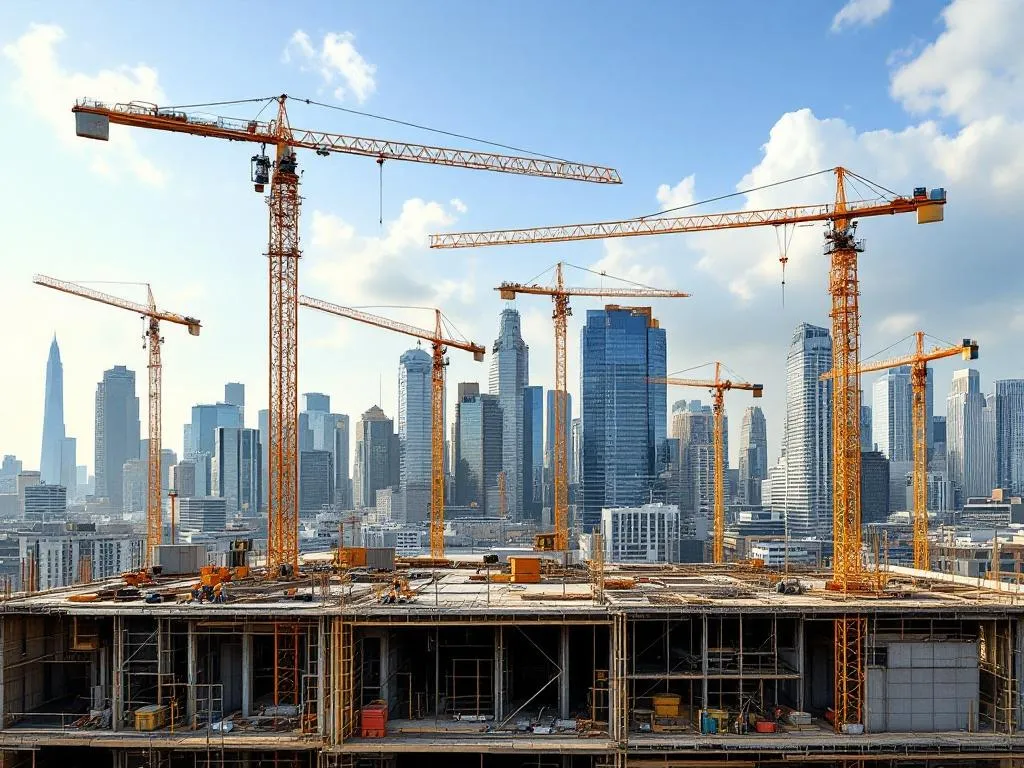
Building Success: Exploring the Evolution and Impact of Modern Construction Services
The construction industry has always been a cornerstone of civilization, shaping the world we live in and constantly evolving to meet the needs of a growing population and changing society. From the earliest structures built by ancient civilizations, to the towering skyscrapers and complex infrastructure systems of the modern era, construction services have played an essential role in the progression of human society. This industry has seen remarkable transformations over the years, driven by technological advancements and innovative methods that have significantly influenced its efficiency, sustainability, and overall success.
The advent of technology has revolutionized construction services, increasing efficiency and productivity while reducing costs and risks. One of the most significant technological advancements that has impacted construction services is Building Information Modelling (BIM). BIM is a digital representation of the physical and functional characteristics of a facility, providing a shared knowledge resource for information about a facility and forming a reliable basis for decisions during its life-cycle. This technology has not only optimized the design and construction process but also improved the operation and management of built assets.
Moreover, the integration of Artificial Intelligence (AI) and automation in construction services has also brought about immense changes. From autonomous vehicles and drones for site inspections to AI-powered predictive analytics for project management, these technologies have streamlined processes, improved accuracy, and increased safety in construction sites. These advancements have allowed construction services to deliver projects on time and within budget, while also enhancing the quality and longevity of the built environment.
In addition to technological advancements, innovative methods have also played a significant role in the progression of construction services. Prefabrication and modular construction are prime examples of such methods. Prefabrication involves the production of components in a factory or manufacturing site, which are then transported and assembled on-site. This process significantly reduces construction time, minimizes waste, and improves quality control. Similarly, modular construction involves the construction of individual sections or modules in a controlled environment, which are then transported to the site for assembly. This method not only accelerates project timelines but also promotes sustainability by reducing site disturbance and material waste.
Sustainability has become a crucial aspect of construction services, largely driven by the growing awareness of environmental issues and the need for sustainable development. Construction services have started to incorporate green building practices, focusing on the efficient use of resources, minimizing waste, and creating healthier and more environmentally-friendly buildings. This shift towards sustainability has not only benefited the environment but also resulted in cost savings, improved occupant health, and increased property values.
The incorporation of renewable energy sources in construction projects is another key trend in sustainable construction services. Solar panels, wind turbines, and geothermal systems are increasingly being integrated into building designs, reducing reliance on non-renewable energy sources and lowering greenhouse gas emissions. These renewable energy systems not only contribute to environmental sustainability but also provide significant economic benefits through energy savings and tax incentives.
The progression of construction services has also been influenced by the adoption of lean construction principles. Lean construction aims to minimize waste and maximize value through improved planning and control. This approach has been instrumental in reducing construction delays, improving quality, and increasing customer satisfaction.
In conclusion, the advancements in technology, the emergence of innovative methods, and the shift towards sustainability have greatly influenced the progression of construction services. These developments have optimized processes, improved efficiency, enhanced quality, and promoted sustainability in the construction industry, paving the way for a more efficient and sustainable built environment. As we continue to innovate and adapt, the future of construction services promises even more exciting possibilities and advancements.
